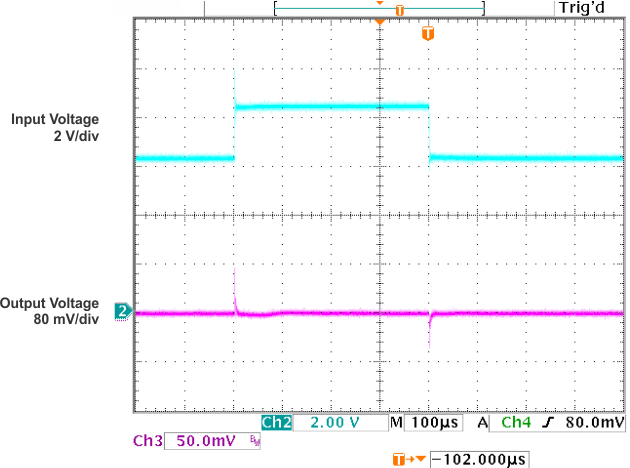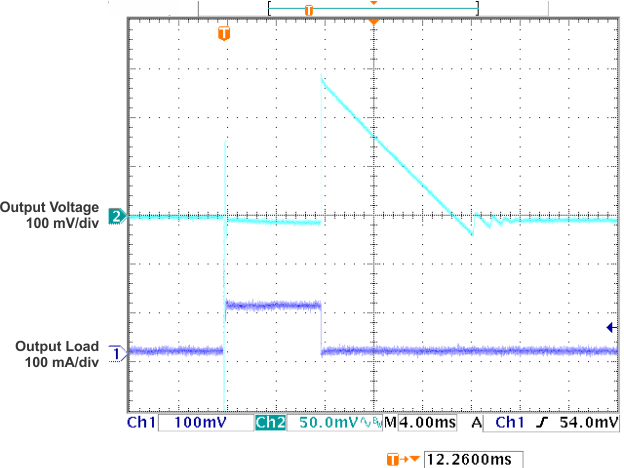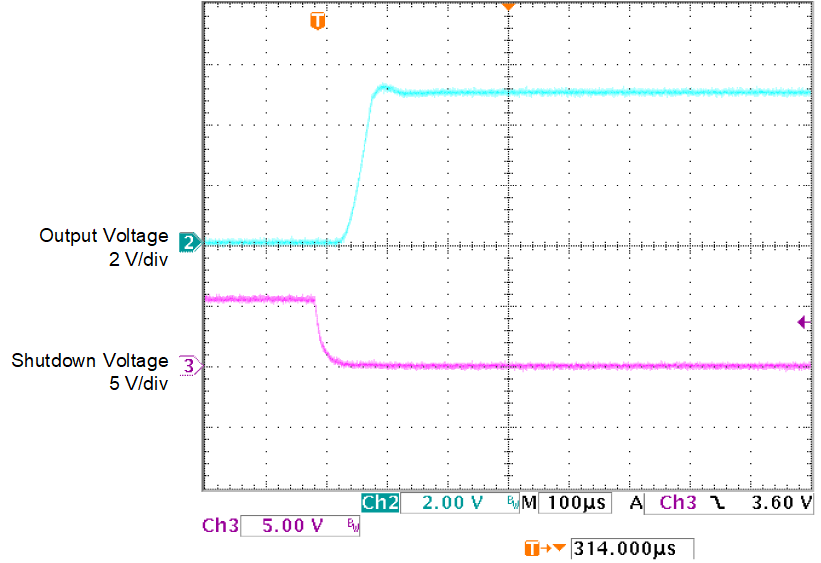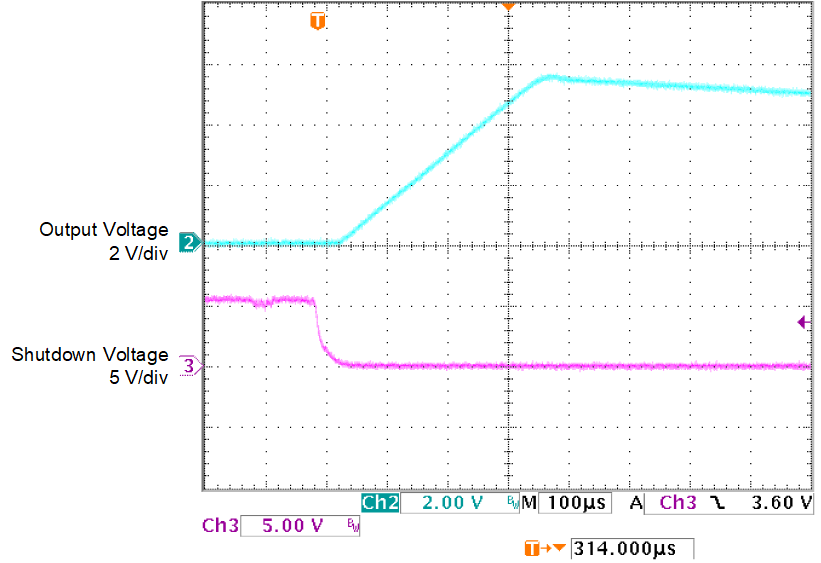SLVSAW6H June 2011 – November 2024 LP2951-Q1
PRODUCTION DATA
- 1
- 1 Features
- 2 Applications
- 3 Description
- 4 Pin Configuration and Functions
- 5 Specifications
- 6 Detailed Description
- 7 Application and Implementation
- 8 Device and Documentation Support
- 9 Revision History
- 10Mechanical, Packaging, and Orderable Information
Package Options
Mechanical Data (Package|Pins)
Thermal pad, mechanical data (Package|Pins)
- DRG|8
Orderable Information
7.2.3 Application Curves


| VOUT = 5V, CL = 10µF |

| VIN = 6V, VOUT = 5V, IL = 0mA to 100mA, CL = 1μF |

| VIN = 6V, VOUT = 5V, CL = 1μF, IL = 1mA |

| VIN = 6V, VOUT = 5V, CL = 10μF, IL = 1mA |

| VIN = 6V to 8V, VOUT = 5V, CL = 1μF, IL = 100μA |

| VIN = 6V, VOUT = 5V, IL = 0mA to 100mA, CL = 10μF |

| IL = 1mA, CL = 1µF |

| IL = 1mA, CL = 10µF |